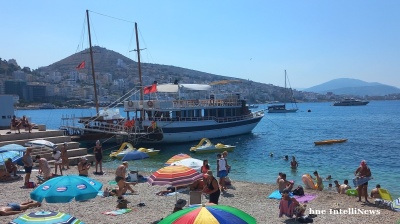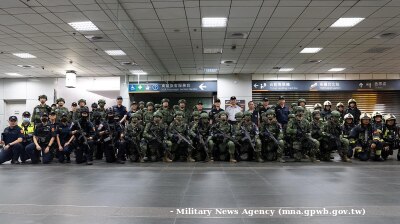A commercial for Romania’s largest online retailer eMag has been running on most TV stations in Romania since October 2, stirring up a wide range of sentiments and a controversy that goes well beyond the chief purpose of the video — raising awareness about the services provided by eMag.
“I was 30,” the commercial begins — the age of the speaker in the autobiographic video clip, but also the time that has elapsed since the communist regime was overthrown in Romania.
“I was 30 when life stopped, when the [iron] curtain fell and walls began to be built. I was 30 when they condemned all of us to terror and they condemned our kids to hunger and cold … I was 30 when I lost what I loved most: freedom. … Please allow me to celebrate it now, 30 years after we re-gained it.” And, instead of “The end”, the clip concludes with eMag’s new and improved slogan: “Freedom every day”.
Mihai Sora — his life
The speaker is Mihai Sora, 103, a philosopher highly educated in France shortly before the First World War, a dedicated communist during his youth as part of the French Resistance (“the human kind of communism”, he has said). As a member first of the French Communist Party, and later the Romanian Communist Party, he stands out among the prominent young Romanian intellectuals of that time, many of whom developed extreme right wing beliefs.
Sora returned to Romania in 1948 under unclear circumstances. Some, including prominent writer Eugen Ionescu and Romanian dissident Paul Goma, claim that he was expelled by France as a Soviet spy. Sora himself declared that he was invited by the Romanian communists to remain and “I trusted them”.
“I had created illusions about the opening of the far-left regime. It turned out that I was blind,” he admitted in an interview. In another interview, he claims that he was arrested while trying to leave the country by train — a situation developed in the commercial.
Sora remained in Romania and took a low-ranking position in the government then turned into a “soft dissident”. He was allegedly barred from holding a teaching appointment, but nevertheless became an influential editor for one of the main Romanian publishers, ESPLA. After the fall of communism, Sora served as minister of culture in the cabinet of the first post-communist prime minister Petre Roman, and more recently he has become highly politically active in the fight against corruption.
The commercial raises a question that goes to the heart of Romanian society’s evolution over the last 30 years. Who is the “us” and who are the “them” Sora refers to in the commercial is never mentioned, but this point is crucial in a collectivist society like the Romanian one, as defined under Hofstede’s model of national cultures.
Sora has been accused by some as being from among “them” (those who enforced a communist regime in Romania using the most brutal methods), and this is what stirred the controversy. A former dedicated communist, speaking about freedom — while being paid by a corporation that is coming increasingly under attack for its monopolistic position — was the main criticism against the commercial. And criticism, in a collectivist society, is something very bad that puts you out of the group, in line with “them”.
eMag’s commercial — and the scandal
The purpose of eMag’s campaign including the commercial was only to mark a change in the brand identity of the retailer, including a new slogan (“Freedom every day”) and a new logo. The story is rather minimalist and conventional in its nature, exactly as one would expect from a commercial: the freedom eMag delivers is the freedom missed so much during the communist regime, which is therefore worth being celebrated “every day”.
Papaya Advertising, the agency that created the commercial, stood by another controversial commercial last year, a pro bono activist one in favour of the LGBT community. This time, however, Papaya seems to have started a war (possibly unintentionally) it was not ready to fight and its head Robert Tiderle ended by blaming those arguing that Sora is not exactly in a position to speak on this topic, of being “young left-wing activists for whom communism remains a good idea that has been misapplied; supporters of the traditional family; nationalists; ultra-Orthodox; corrupt,” and the list continues.
Actually, some of those who questioned the commercial are in position at least to have a voice in the debate, such as Octav Bjoza, the head of the Former Political Detainees Association (AFDPR) that represents those who spent dozens of years in prisons or labour camps, subject to humiliation and extreme atrocities not known only because Romanian society still has a problem in identifying who are “us” and who are “them” — a very painful situation even 30 years after communism as we know it was dismantled.
Tiderle correctly identified and highlighted Sora’s recent opposition, as part of the #Rezist movement, to the efforts of the ruling Social Democrat Party to bend the rule of law. But this is myopic. Whether or not it is relevant to the argument, or to the commercial produced by Papaya, Sora’s past is of interest and judging his intellectual development is an indicator of whether Romanian society is able to judge a person for his deeds — rather than for his membership of a group. This indicator is relevant as a proxy of the progress Romanian society is making from collectivism to individualism.
The past is important because it always surfaces
Furthermore, some of Sora’s defendants tend to bend his biography. Among them are the opposition Save Romania Union (USR) that awarded him the title of honorary citizen of Bucharest Municipality for a decision he reportedly never took: stepping down from Roman’s cabinet in protest against the decision to bring thousands of miners to Bucharest to forcibly disperse protests in 1990. Ironically, USR Bucharest head Roxana Wring handed the prize to Sora in early 2017, only to admit two years later that she cooperated with the Securitate, the Romanian version of the better known STASI in Germany.
Sora himself has admitted another episode that illustrates the magnitude of issues Romanian society has to tackle: among the whistle blowers who were informing the Securitate about his activity during his “soft dissidence” period, his own son was recruited by the secret services at the age of 14.
Such things, if not openly clarified, only reinforce the collectivist structure of Romanian society, adding to the “bad groups” the “good groups” organised on the same collectivist mechanics — like the online movement #Rezist.
The point is not to judge an individual, but how individuals are judged
Is Mihai Sora, a former Communist Party member turned active opponent of the PSD (the “red plague”, as it is touted during the street protests attended by Sora), entitled to speak of the freedom Romanians “regained in 1989”? This is the core of the current debate, while broader insights about the communist regime and its impact on society are absent from the mainstream public debate.
In this sense, the commercial has unintentionally done Romania a service by, albeit on a small scale, broadening the scope of the debate.
Some believe the answer is no; like Bjoza who blamed Sora for speaking impersonally about “them” (the communists) who “stole our liberty”. Others, like politologist Alina Mungiu Pippidi or Deutsche Welle journalist Petre Iancu, while not trying to obliterate Sora’s leftist past, argue that he has actually evolved.
This is a relevant line of defence that unfortunately is not shared by Sora’s most vocal supporters. Sora himself, in an interview given to G4media.ro in March, admitted that he trusted the communist regime when in 1948 he genuinely wanted to “show the world how a liberal leftist regime works”. But he denies any wrongdoing during his position in the communist government and underlines the good things he has done.
Eventually, more important than the outcome of the argument is the argument itself — holding a debate about people, events and developments — and gradually abandoning the judgements based on “us” versus “them” .
This article is part of bne IntelliNews’ series marking the 30th anniversary of the fall of the Berlin Wall. Find more articles from the series here:
Corruption, racism and intolerance in Bulgaria
The Czech Republic divided by freedom since 1989
Central European automakers prepare for an electric future
Features
KSE: Ukraine is facing a $53bn budget shortfall, but economy is stable for now
Ukraine is in urgent need of additional financing from partners as the continuation of the war drives up defence spending and reconstruction needs, jeopardizes budget financing, weighs on the balance of payments, and slows economic growth.

PANNIER: Ruling family’s ‘palace in the sky’ cruel sight for Turkmenistan’s poor souls down below
Photos posted of renovated Boeing by US makeover manager offer further insight into "ultra-luxurious" world enjoyed by Berdimuhamedovs.

Russia tax service targets Russian accounts in UAE
The Russian Federal Tax Service (FTS) has ramped up its scrutiny of Russian nationals holding accounts in the United Arab Emirates, following the effective implementation of automatic tax information exchange between the two countries.

INTERVIEW: Can Albania’s tourism miracle last?
As social media brings in the crowds, the head of the Albanian Tour Operators Association tells bne IntelliNews Albania should turn away from mass-market tourism and focus on higher-value offerings.




